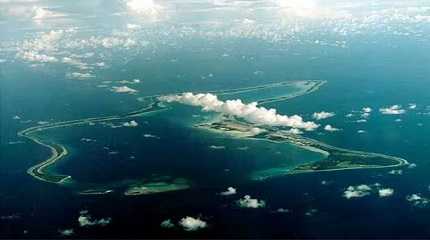
HONG KONG, Dec 14 (Reuters) - Every day, nearly 60 fully loaded very large crude-oil carriers sail between the Persian Gulf and Chinese ports, carrying about half of the oil that powers the world's second-largest economy.
As the vessels enter the South China Sea, they ply waters increasingly controlled by China's growing military, from the missile batteries and airfields at its bases on disputed islands to its stealthy Type 055 destroyers.
But when crossing the Indian Ocean, joined by others headed to China from Africa and Brazil, these tankers lack protection in a naval theatre dominated by the U.S.
A dozen military attaches and scholars say that vulnerability is now being scrutinised as Western military and academic strategists discreetly game scenarios about how a conflict with China over Taiwan, or elsewhere in East Asia, could evolve or escalate.
In a major war, Chinese oil tankers in the Indian Ocean "would find themselves very vulnerable", said David Brewster, a security scholar at the Australian National University.
"Chinese naval vessels would effectively be trapped in the Indian Ocean and ... they would have little or no air support, because there are no bases or facilities of its own that (China) could rely on."
Four envoys and eight analysts familiar with discussions in Western and Asian capitals, some speaking on the condition of anonymity to discuss a sensitive topic, said this enduring weakness gives China's adversaries a ladder of escalatory options, especially in a drawn-out conflict, like Russia's war on Ukraine.
These scenarios range from harassment and interdiction operations against Chinese shipping that could divert Chinese naval vessels to the region, up to a blockade and beyond.
In a full-scale war, the tankers - capable of carrying 2 million barrels of oil - would be prizes to be sunk or captured, reflecting naval actions of last century in which combatants targeted their enemies' economic resources, three analysts said.
These options could be used to dissuade China from launching action, or later to raise costs on an invasion of Taiwan.
Less clear is how this vulnerability shifts Beijing's calculations toward Taiwan, the people said.
China's defence ministry did not respond to questions about its position in the Indian Ocean.




